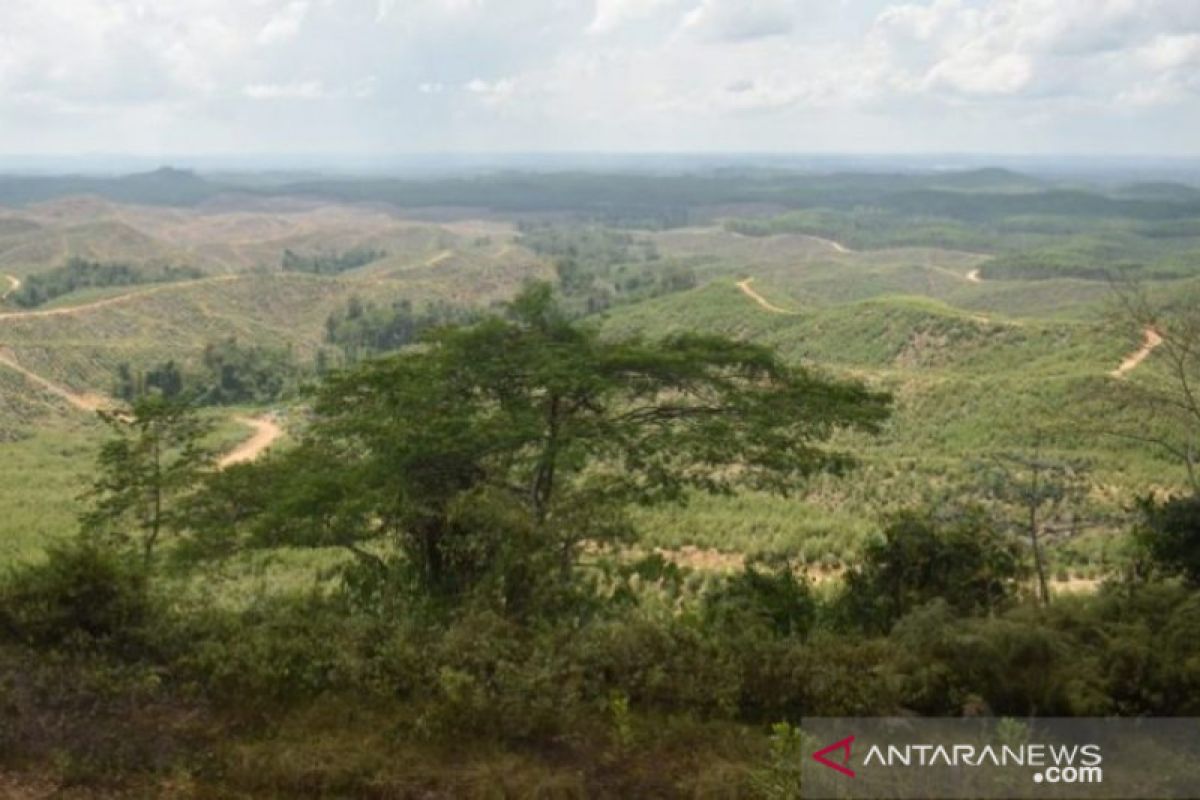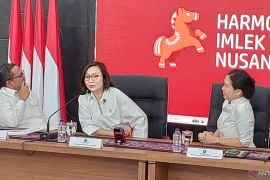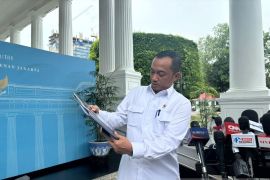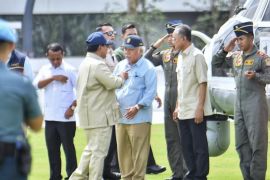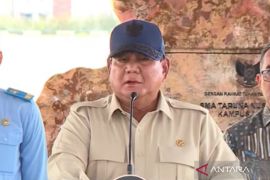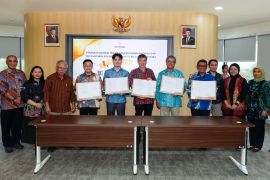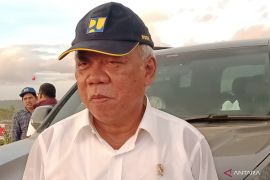The word nusa is from Kawi language, antara is from Sanskrit. These two languages are indeed, closely relatedJakarta (ANTARA) - Indonesia has reached a new stage in the development of the new capital city in East Kalimantan with the government recently announcing the name for the new capital: “Nusantara.”
"Nusantara" is not an unfamiliar word for Indonesians.
According to a Javanese literature lecturer from Gadjah Mada University, Rudy Wiratama, the word has been used ever since the rule of the Singasari kingdom, which was located in East Java.
However, at that time, the term was used in the form of “Dwipantara,” he said when contacted by ANTARA here on Tuesday.
Around 1275, King Kertanegara of Singasari introduced the “Cakrawala Dwipantara Mandala” concept, he informed. "Dwipantara" comes from Sanskrit and has the same meaning as "Nusantara," he added.
Dwipa and nusa mean "island," while antara means "outer," he said. Thus, the term "Dwipantara" was used to refer to the islands located across Java, Wiratama explained.
Kertanegara used the Cakrawala Dwipantara Mandala concept to unite kingdoms on the islands (Dwipantara) to counter the threat of the Mongols who aimed to establish the Yuan dynasty in China, he said. In other words, Kertanegara sought to unify Java and Dwipantara (the islands) against the threat, he added.
Related news: Jokowi to issue regulation on national capital's governing authority
Even though the concept was initially deemed a military conquest effort, the expeditions launched under Cakrawala Mandala Dwipantara were eventually projected as diplomatic efforts to establish friendship and alliance between Singasari and those kingdoms, Wiratama said.
As part of the diplomatic efforts, Kertanegara gifted the Amoghapasa statue to please the Malay ruler and the people who took part in the Cakrawala Mandala Dwipantara expedition. To repay Kertanegara, the Malay king sent princesses Dara Jingga and Dara Petak to marry the Javanese ruler.
Nusantara from Gajah Mada’s Perspective
In the book Gajah Mada: Biografi Politik, an archaeologist from the University of Indonesia has said that Gajah Mada continued the political concept of Dwipantara through the Palapa Oath in 1336.
In his oath, Gajah Mada used the term "Nusantara" to specifically refer to all the islands that his kingdom, Majapahit, aimed to rule, including those outside his territory.
In his book Gajah Mada: Pahlawan Persatuan Nusantara, Mohammad Yamin states that the Nusantara that was successfully ruled by Majapahit included the entire island of Java, Sumatra, Kalimantan, the Malay Peninsula, Nusa Tenggara, Bali, Sulawesi, Maluku, and Papua.
Furthermore, when Majapahit collapsed, the term "Nusantara" lost its popularity and was nearly forgotten by the community.
Related news: Garuda launches Wisata Nusantara Program to expedite tourism recovery
Nevertheless, at the opening of the 20th century, prominent educationist Ki Hajar Dewantara re-introduced the term "Nusantara."
However, it no longer referred to the "outermost islands to be conquered," as during Gajah Mada's rule, but served as an alternative name for Indonesia for the Dutch East Indies, for whom until now, the word denotes the archipelagic country.
Thus, the meaning of Nusantara has changed and evolved from time to time.
Nusantara as the New Capital’s Name
Of late, "Nusantara" has gained the spotlight with the Indonesian government announcing it as the name of the country’s new capital in East Kalimantan province.
There have been varying reactions to the proposed name for the new capital. For this reason, it is essential for people to understand the term "Nusantara" in greater depth in order to prevent polemic, especially given the fact that some sections feel the word "Nusantara" only represents a certain ethnicity.
Although "Nusantara" is commonly associated with the Javanese connotation it took on during the rule of the Majapahit kingdom, it does not refer to certain ethnic elements, Wiratama argued.
The term was coined from Kawi and Sanskrit languages that were commonly spoken by people back then, especially Kawi, the language that was used in Malay, Java, Bali, Vietnam, and Malaysia, he noted.
"The word nusa is from Kawi language, antara is from Sanskrit. These two languages are indeed, closely related, " he said.
Related news: PEN budget to cover new capital development: minister
Therefore, he stressed that the view that "Nusantara" refers to a certain ethnicity is inaccurate.
Given its long history, "Nusantara" has acquired a broad meaning so people should not make hasty assumptions about the purpose behind its being chosen as the name for the new capital, Wiratama stressed.
He said he believes that President Joko Widodo and his cabinet gave the new name due consideration before making their choice.
While there may be many reasons for anointing the new capital "Nusantara," he expressed the hope that uniting all Indonesians would be one of the government's goals.
Related news: New capital Nusantara to support realization of Golden Indonesia 2045
Related news: New capital construction must not strain state budget: deputy speaker
Translator: Tri Meilani, Raka Adji
Editor: Fardah Assegaf
Copyright © ANTARA 2022
